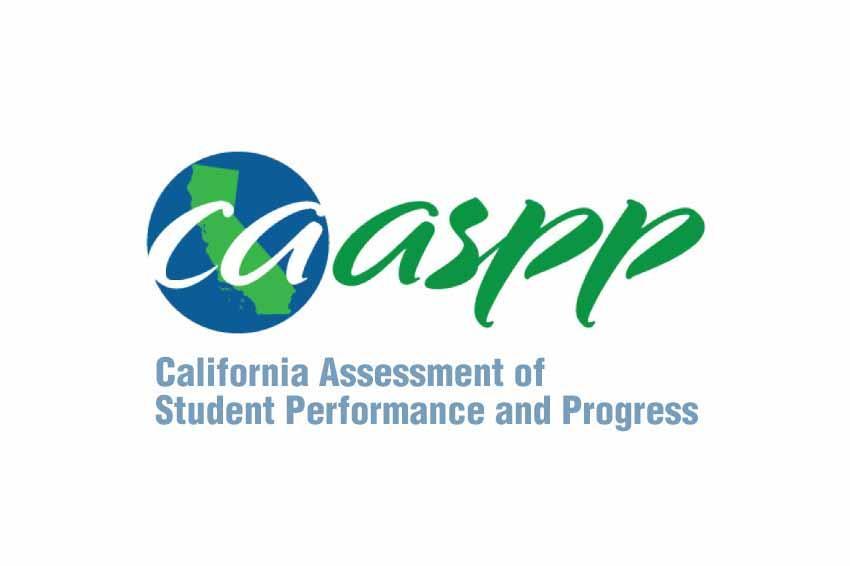California Assessment of Student Performance and Progress (CAASPP)

Preparing for the CAASPP: Taking Practice Tests
As Lake Balboa CP prepares to take the SBAC as a part of the CAASPP testing, students can take practice tests at home to prepare and understand the type of questions they will be given.
The practice test can help you understand testing format and features, and is a great opportunity to know what type of questions will be asked.
To see a practice test, visit the California Department of Education’s (CDE’s) Smarter Balanced Practice Tests Web page: https://www.cde.ca.gov/ta/tg/sa/practicetest.asp
The tests are part of the California Assessment of Student Performance and Progress System, or better known as CAASPP, and are one element of information that helps teachers, parents, and the student understand how well the student is meeting their grade level’s expectations.
The Smarter Balanced Summative Assessment tests will be taken in April and May. The Science, English language arts and math tests will not be taken on the same day. The tests will include Science information, critical thinking and problem solving questions. These assessments are not timed, so students will have plenty of time to complete their tests.
For more information about the Smarter Balanced Summative Assessments you can visit: https://bealearninghero.org/in-the-classroom/smarter-balanced/
CAASPP- FREQUENTLY ASKED QUESTIONS
What is CAASPP?
The California Assessment of Student Performance and Progress (CAASPP) exam consists of Smarter Balanced English language arts/literacy (ELA) and mathematics. California Alternate Assessments for ELA, mathematics, and science. California Science Test (CAST)
Why is CAASPP important?
- It provides an opportunity to measure the skills of all students against the academic standards. The results will not be used for any evaluative grade purposes. Instead, this information helps plan out curriculum supports, instruction, and resources to support student learning.
- These assessments provide important information as to whether students are on track to pursue college and career by the time they graduate from high school. The tests provide timely and actionable student information so that teachers and schools can adjust and improve teaching.
- Student participation and performance on the state tests directly contribute to school’s academic performance accountability measures on the California Dashboard. The authorizing school districts and the state look at our academic performance indicators as a determining factor to keep schools open. Charter school renewal is now based on academic performance indicators. Academic performance for math and English language arts is determined by CAASPP testing and participation rates.
Who takes CAASPP?
Each spring California students in grades three through eight and grade eleven take the Smarter Balanced Summative Assessments in English language arts/literacy (ELA) and mathematics.
When CASAPP will be taken?
CAASPP Testing will take place In April and May. Students will be assigned specific days and times during this testing window to remotely complete the tests with their teacher/s. Students will test over multiple days. Testing sessions are approximately three hour. It is essential that your child attend the scheduled testing days.
Does CAASPP matter for college?
Participation in the CAASPP also directly affects students. It is also a College Readiness Indicator called the Early Assessment Program. Students who achieve a certain score can skip placement tests or introductory courses for California State University schools or specific community colleges.
What are the components of CAASPP?
The math and English assessments are comprised of two components: the computer adaptive test (CAT) and the performance tasks (PTs). Performance tasks requires students to synthesize multiple sources of information, critically analyze, and develop an extended response to a real-world problem.
How CASAPP will be administrated?
Students will complete their CAASPP testing in person with their scheduled teacher/s starting April 25th using their school provided Chromebooks. All testing is completed on this Chromebook and personal devices are not allowed.
What is CAST?
The California Science Test (CAST) measures what students know and can do using the California Next Generation Science Standards , which focus on understanding the scientific concepts found in the life sciences, earth and space sciences, and physical sciences. These standards integrate disciplinary core ideas, science and engineering practices, and crosscutting concepts to help students understand how science works in the natural world.
California Science Test - Video
What types of questions are in the CAST?
The CAST consists of stand-alone or discrete questions and two or more performance tasks. Questions can be multiple-choice, where the student selects one or more options; constructed-response, where the student writes a text response; or technology-enhanced, where the student performs an action (such as indicating a part of a graphic), selects an option from a drop-down menu, completes a data table or diagram using drag-and-drop functionality, or otherwise responds in a way that takes advantage of the online test delivery platform.
Who takes CAST?
5th, 8th, 11th grade students are required to take the CA Science Test (CAST). 12th grade students that have not completed the CAST test as an 11th grader are also required to test.
How to access electronics student score reports and other resources?
The Starting Smarter website is available to help empower parents/guardians and families to become partners in their children's academic success:
- View or download the Introduction to Electronic Score Reporting video.
- Starting Smarter for the CAASPP
- CAASPP Parent/Guardian Site
- Link to Practice and Training Tests (Direct Link to Practice and Training Tests)
- CAASPP Parent Guardian Resources (Collection of PDFs, Fact Sheets, Video Tutorials for Universal Tools)